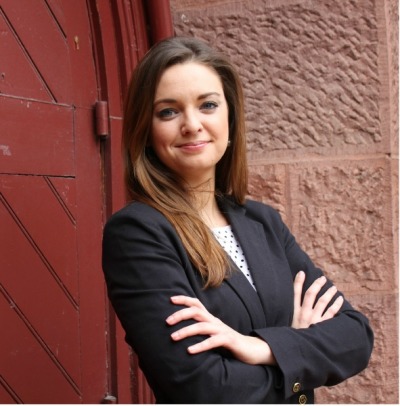Millennials Leaving Christianity, but There's Hope in the Gloomy Numbers

We are witnessing the rise of a new kind of religious orientation. The nones.
Researchers now use the label "nones" to refer to the increasing number of people who identify as unaffiliated with religious establishments.
In fact, a new study released by the Public Religion Research Institute (PRRI) found one-quarter (25%) of Americans identified as nones or unaffiliated. To offer some context, 21 percent of Americans are Catholics.
Over the weekend, I attended Religion News Association's annual conference where David Cox, PRRI's Director of Research, presented his surprising, albeit discouraging findings.
"We're really seeing an explosion of Americans who are now unaffiliated," said Cox. "Every age group is witnessing an increase. So this is not just a phenomenon among young people."
However, Cox noted it is Millennials who are identifying as nones at a faster rate than their parents and grandparents' generations. About 39 percent of young adults between 18-29 identify as nones. More astounding is that 62 percent of young adults say they disassociated from their religious tradition while still under 18 years old, "while they're still under their parent's roofs."
Why are the nones leaving religion? Most commonly this was because they stopped believing in their religion's teachings (60%), their family did not worship faithfully while growing up (32%), or they now disapprove of their former religion's negative teachings about or treatment of LGBTQ people (29%).
Perhaps more insightful was PRRI's look at how family dynamics affected a person's religious affiliation.
Divorce is a key contributor to religious disaffiliation, found PRRI researchers. About 35 percent of Americans raised by divorced parents were more likely to be unaffiliated with a religious tradition than those whose parents were married during childhood.
Take Millennials as an example.
"Divorce rates peaked in the early 1980s just as the oldest members of Generation Y, Millennials were being born," said Cox. "Millennials are more likely to have divorced parents more than any other previous generation."
The religious make-up of parents significantly contributes to an individual's religious affiliation — or in this case disaffiliation. PRRI found 31 percent of Americans raised by parents with different respective religious traditions are more likely to identify as nones.
One specific example of this scenario in PRRI's study focuses on Catholics. Only 39 percent of individuals raised by one Catholic parent and another parent of a non-Catholic identity identified as Catholic in adulthood. By contrast, two-thirds of Catholics raised by two Catholic parents embraced their Catholic Christian faith as adults.
The gloomiest bit of data out of PRRI's study was in relation to whether or not the nones will return to religion. Only seven percent of nones say they are currently looking to join a new religious community.
Did you catch that? Only seven percent. Meaning 93 percent are not.
Before we get discouraged with the negativity of PRRI's survey results, I'd like to share a bit of good news.
First, the majority of Americans (73%) still identify themselves as Christian and Christianity still plays an important role in society, as my colleague Joseph Rossell reported two weeks ago.
Second, I wasn't "looking" to join a religious group before I encountered the Gospel of Jesus Christ. And I'm willing to bet that neither were you, reader friend. It was thanks in part to the sorrow of sin, the witness of a pastor acting as marriage counselor, and the Holy Spirit that I eventually chose to identify as "religiously affiliated."
So there is hope in the gloomy numbers, so long as the Church never forgets the nones need Jesus too.
Originally posted at juicyecumenism.com.






















